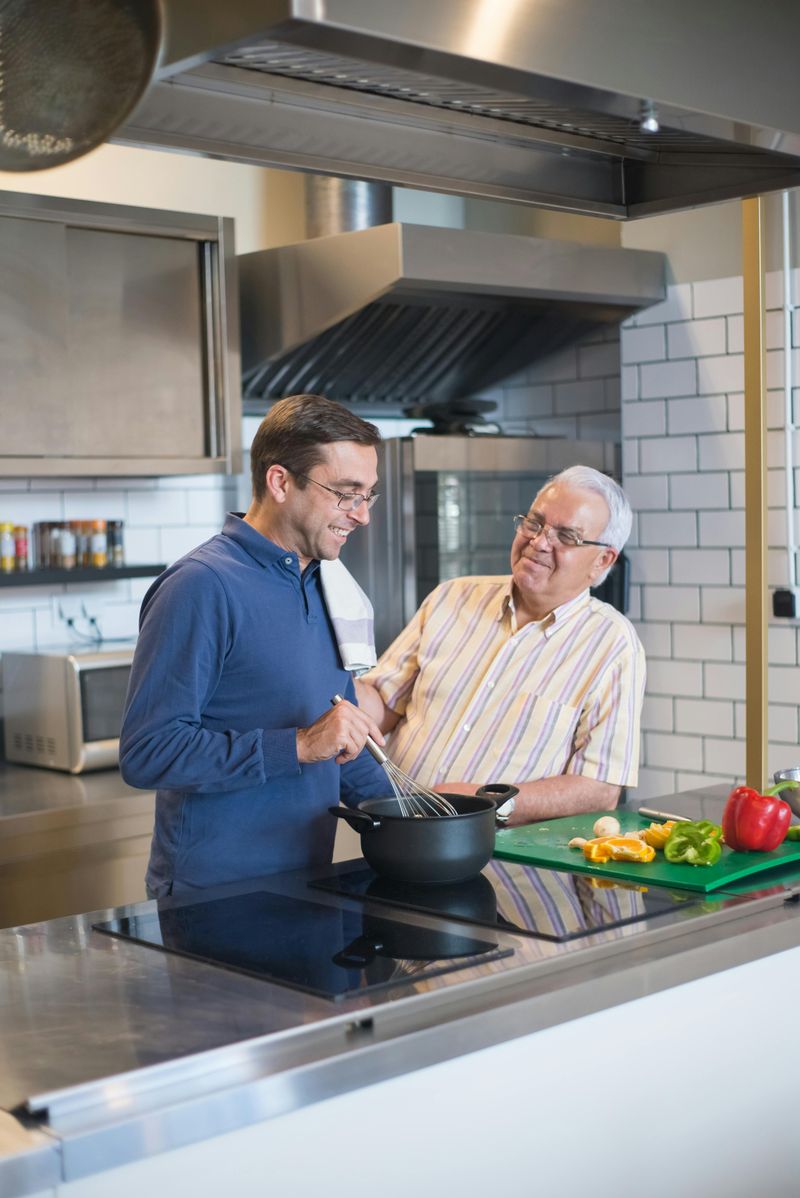7 Insightful Questions Happy Couples in Lasting Relationships Can Answer

Ever wonder what makes some relationships stand the test of time while others fizzle out? Happy couples who build lasting partnerships often share a deep understanding of each other that goes beyond surface-level knowledge. They recognize each other’s hidden feelings, unspoken needs, and personal growth patterns. These 7 questions reveal the emotional intelligence and connection that thriving couples develop together.
1. What’s a seemingly small interaction that left a lasting impact on them?

Couples with strong bonds can pinpoint seemingly small interactions that profoundly shaped their relationship. Maybe it was a gentle hand on the shoulder during a difficult day or an unexpected compliment that came exactly when needed.
These moments often fly under the radar but create powerful emotional anchors. They demonstrate how attentive partners notice the subtle ways their loved ones respond to different situations.
When both people recognize these turning points, it shows they’re paying attention to the same relationship story. These shared memories become touchstones they return to during challenging times, reminding them of their unique connection.
2. What’s their go-to mental escape when they’re feeling overwhelmed?

Understanding your partner’s mental escape hatches reveals how well you know their coping mechanisms. Some people mentally transport themselves to a childhood beach, while others might replay favorite movie scenes or imagine future travel destinations.
Partners who stay connected through difficult times recognize these escape patterns without judgment. They know when to offer space versus when to gently guide their loved one back to the present moment.
This awareness creates a safety net where both people feel seen during vulnerability. It’s not about fixing their stress but acknowledging how they process it – a subtle but crucial difference that strengthens trust.
3. What’s a social situation they secretly dread, but will never admit to?

Many people maintain social personas that hide their true comfort levels. Your outgoing partner might secretly feel anxious at large networking events, while your seemingly confident spouse might dread public speaking.
Partners who truly understand each other can name these hidden social anxieties without their loved one ever explicitly stating them. They notice the subtle shifts in body language, the forced smiles, or the relief when plans get canceled.
This sensitivity allows them to create protective buffers in uncomfortable situations – standing closer during work parties or taking over conversations when needed. These small acts of protection demonstrate deep emotional attunement.
4. What’s a habit they picked up from their parents that they wish they could break?

We all inherit behavioral patterns from our families. Sometimes these traits serve us well, but others become habits we struggle to break – like avoiding conflict, perfectionism, or difficulty expressing emotions.
Couples with strong foundations recognize these inherited patterns in each other. They can compassionately identify which behaviors their partner is actively working to change without criticism or judgment.
This awareness creates space for growth and healing together. When one person understands how family history shapes current reactions, they can respond with patience rather than frustration during challenging moments, creating a safer environment for personal development.
5. What’s a moment they felt truly proud of themselves, but never brag about?

Behind closed doors, we all experience moments of personal triumph that never make it to our social media feeds or dinner party conversations. These might include overcoming childhood fears, small acts of everyday courage, or professional accomplishments downplayed out of modesty.
Partners who truly see each other can identify these unspoken victories. They recognize when their loved one has conquered something meaningful but chooses not to broadcast it.
This recognition goes beyond surface-level praise to honor the deeper values behind their humility. When you can name what makes your partner privately proud, you demonstrate that you’re paying attention to their internal growth, not just their public persona.
6. Which core value do they believe shapes them the most?

Each person operates from a set of core values that shape their choices – perhaps fairness, security, freedom, connection, or authenticity. These principles often work silently in the background of decision-making.
Happy couples can identify which fundamental value their partner prioritizes above others. They understand why certain compromises feel impossible while others come easily.
This insight prevents unnecessary conflict when values temporarily clash. Rather than seeing disagreements as personality flaws, they recognize them as different but equally valid priorities. This perspective allows them to find creative solutions that honor both people’s underlying needs instead of getting stuck in surface-level arguments.
7. When they face a challenge, what strengths do you notice in how they cope or rebound?

Everyone has a unique resilience signature – the particular way they process setbacks and rebuild afterward. Some people need solitude and reflection, while others seek connection and discussion to recover their equilibrium.
Partners in strong relationships can describe exactly how their loved one moves through difficult times. They recognize the signs of healing and know when to offer support versus when to step back.
This knowledge becomes especially valuable during shared challenges like financial stress or health issues. When both people understand each other’s coping mechanisms, they can navigate rough waters without taking personal offense at different recovery styles, creating space for individual healing within their partnership.

Comments
Loading…